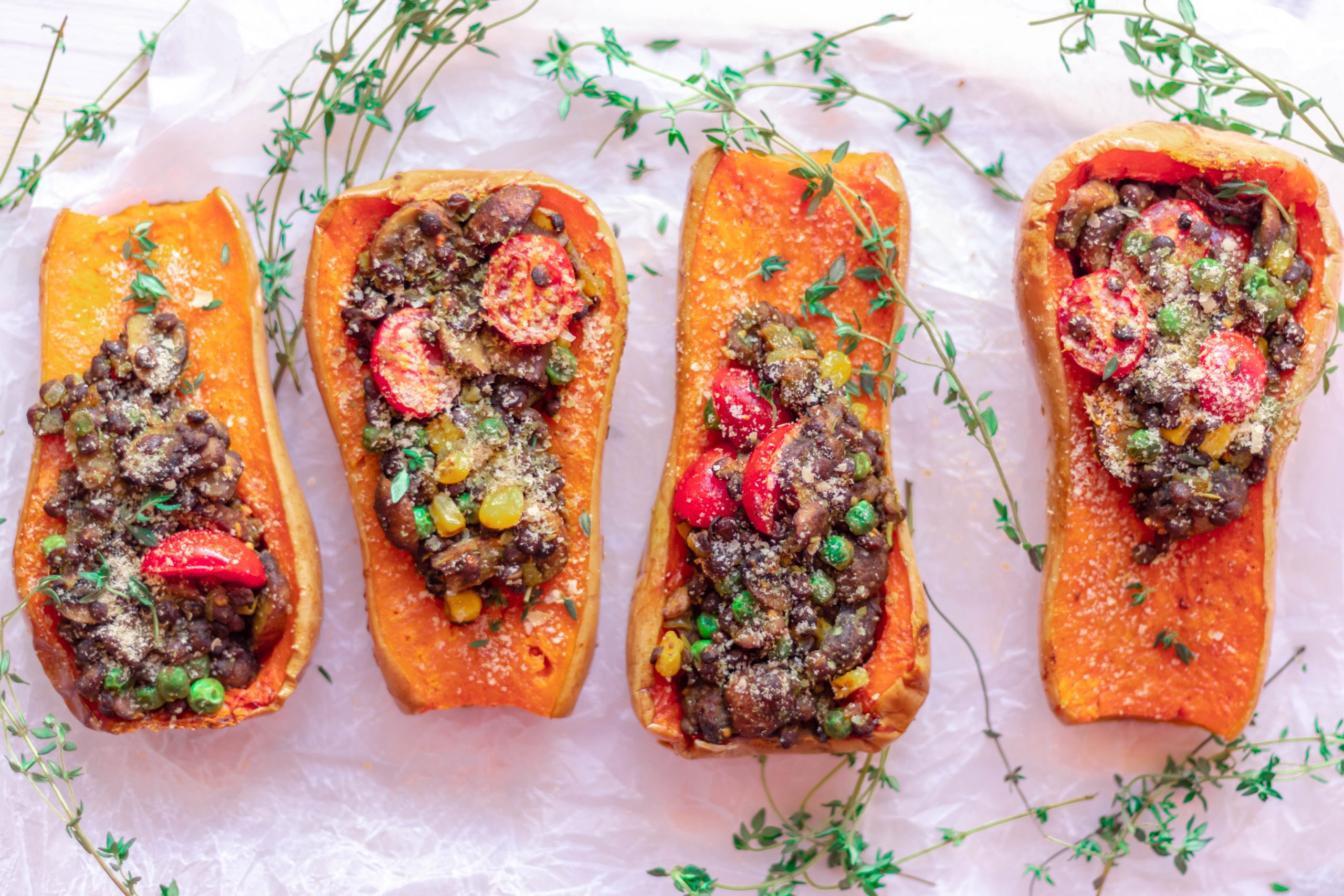When you think of protein sources, nutritional yeast probably isn’t the first thing that comes to mind. In fact, it might not even be on your radar at all. But as a nutritionist and weight loss coach who’s helped hundreds of women over 40 reclaim their health, I can tell you: nutritional yeast (aka “nooch”) deserves a spot in your pantry.
This golden flake packs a surprising protein punch, offers an impressive list of health benefits, and is versatile enough to sneak into everyday meals. Whether you’re plant-based, dairy-free, or just looking to boost your protein in creative ways, keep reading—you’re going to want this ingredient in your life.
What is Nutritional Yeast?
Nutritional yeast is a deactivated yeast (usually Saccharomyces cerevisiae) that is grown on molasses or sugar beets, harvested, heated, and dried. Unlike baking yeast or brewer’s yeast, nutritional yeast doesn’t cause dough to rise and it won’t ferment anything. It has a naturally cheesy, nutty, savory flavor, making it a favorite among vegans and health-conscious eaters.
It’s available in both flake and powder form, and you can typically find it in the bulk aisle or natural foods section of your local grocery store. Popular brands include Bragg, Bob’s Red Mill, and Red Star.
Nutritional Breakdown: Why Nooch is a Protein Powerhouse
Here’s where nutritional yeast really shines. Just 2 tablespoons of fortified nutritional yeast provide:
- 8-10 grams of complete protein
- 3-4 grams of fiber
- High levels of B-vitamins (including B12 in fortified versions)
- Zinc, magnesium, selenium, and manganese
- Zero sugar and minimal carbs/fat
What Makes It a Complete Protein?
Nutritional yeast contains all nine essential amino acids, making it one of the rare plant-based complete protein sources. That means your body can actually use it efficiently for building muscle, supporting metabolism, and keeping you full longer.
Comparing Nutritional Yeast to Other Protein Sources
| Protein Source | Serving Size | Protein per Serving | Complete Protein? |
|---|---|---|---|
| Nutritional Yeast | 2 tbsp (16g) | 8–10g | Yes |
| Egg | 1 large | 6g | Yes |
| Chickpeas | 1/2 cup | 7g | No |
| Almonds | 1 oz | 6g | No |
| Quinoa | 1 cup cooked | 8g | Yes |
Health Benefits Backed by Science
Let’s look at the science behind nutritional yeast’s benefits:
1. Supports Lean Muscle and Fat Loss
Thanks to its high protein content, nooch can help preserve muscle mass during weight loss. According to a study published in Nutrients, consuming adequate protein increases satiety, supports metabolic rate, and protects lean muscle during calorie restriction (Nutrients, 2019).
2. Boosts Energy and Brain Function
Fortified nutritional yeast is rich in B-complex vitamins, especially B12, which is essential for energy production, cognitive health, and red blood cell formation. A study published in the American Journal of Clinical Nutrition found that adequate B12 intake is linked to better mood and energy levels, especially in older adults (AJCN, 2010).
3. Immune System Support
Beta-glucans in nutritional yeast have been shown to stimulate immune cells and enhance the body’s defense mechanisms. A 2013 clinical trial found that athletes who supplemented with nutritional yeast had fewer upper respiratory infections (British Journal of Nutrition, 2013).
4. Gut Health and Digestion
The fiber in nutritional yeast feeds healthy gut bacteria and helps regulate digestion. While it’s not a probiotic itself (it’s deactivated), it can play a role in promoting better gut balance.
Ways to Use Nutritional Yeast
This is where nutritional yeast shines: it’s a stealthy flavor enhancer and protein booster. Here are my favorite ways to sneak it in:
1. Sprinkle It On:
Popcorn (hello, cheesy flavor with no dairy!)
Roasted vegetables
Baked potatoes
Avocado toast
Scrambled eggs or tofu
2. Blend It In:
Smoothies (trust me, just a tsp blends right in)
Salad dressings
Dips like hummus or guacamole
Vegan sauces and soups
3. Cook With It:
Stir into mashed potatoes or cauliflower mash
Mix into pasta or zoodles with olive oil
Add to grain bowls for extra flavor and nutrients
Recipes Featuring Nutritional Yeast
1. Vegan “Cheesy” Sauce
Ingredients:
1/2 cup cashews (soaked for 2 hours)
1/4 cup nutritional yeast
1 clove garlic
1/2 tsp turmeric
1 tbsp lemon juice
3/4 cup water
Salt to taste
Instructions: Blend all ingredients until creamy. Use over steamed veggies, grain bowls, or pasta.
2. Protein-Packed Salad Dressing
Ingredients:
2 tbsp nutritional yeast
1 tbsp tahini
1 tbsp apple cider vinegar
1 tsp Dijon mustard
1 tbsp olive oil
2 tbsp water
Instructions: Whisk together or blend for a creamy, high-protein dressing. Great on kale or quinoa salads.
3. Cheesy Roasted Chickpeas
Ingredients:
1 can chickpeas (drained and rinsed)
1 tbsp olive oil
2 tbsp nutritional yeast
1/2 tsp garlic powder
Salt and pepper to taste
Instructions: Roast at 400F for 30-35 mins until crispy. Makes a great snack or salad topper.
Can You Supplement With Nutritional Yeast?
Yes—but moderation is key. While it’s packed with nutrients, some people may be sensitive to the compounds in yeast, especially those with yeast allergies or IBD. Look for fortified versions to ensure you’re getting B12 if you follow a plant-based diet. A daily serving (1-2 tbsp) is plenty to reap the benefits without overdoing it.
Who Should Consider Adding It?
- Vegans/vegetarians looking for complete proteins
- Women over 40 needing more B12 and lean protein support
- Anyone looking to boost their protein intake creatively
- Individuals seeking immune and energy support
Things to Watch Out For
- MSG concerns: Nutritional yeast contains naturally occurring glutamic acid, but it is not the same as synthetic MSG.
- Fortification: Make sure your brand is fortified with B12 if you need it.
- Storage: Store in a cool, dry place to keep it fresh for 6-12 months.
- Final Thoughts: Nooch is the Unsung Hero of the Pantry
How Nutritional Yeast Supports a Vegan or Vegetarian Diet
For anyone following a vegan or vegetarian lifestyle, getting enough complete protein, vitamin B12, and savory umami flavor can be a challenge. Nutritional yeast—aka “nooch”—checks all those boxes and more.
1. It’s a Rare Plant-Based Complete Protein
Most plant-based proteins are incomplete, meaning they lack one or more essential amino acids. Nutritional yeast is a complete protein, providing all 9 essential amino acids your body needs to build and repair tissues, support metabolism, and maintain muscle mass.
This makes it especially valuable for vegans and vegetarians who may not get enough amino acid diversity from plants alone.
2. It’s a Vegan-Friendly Source of Vitamin B12
Vitamin B12 is almost exclusively found in animal products, which puts vegans at risk of deficiency. Fortified nutritional yeast contains 100–200% of your daily B12 needs in just one tablespoon, making it an easy and effective way to support energy, mood, and nervous system health.
🌿 Tip: Always check the label—not all brands are B12-fortified.
3. It Adds Cheesy, Savory Flavor—Without the Dairy
One of the most beloved uses of nutritional yeast is as a cheese alternative. It brings a rich, umami depth to foods without needing Parmesan or cheddar. Perfect for anyone who’s lactose intolerant, avoiding dairy, or just wants a healthier swap.
Use it in:
- Vegan mac and cheese sauces
- Creamy cashew dips
- Pesto without the cheese
- Vegan Alfredo sauce
- Mashed potatoes or cauliflower
4. It Helps Boost Daily Protein Without Protein Powders
If you’re aiming for 60–100+ grams of protein per day on a plant-based diet, every bit counts. Sprinkling 1–2 tablespoons of nooch into meals adds 8–10 grams of protein with virtually no prep or cleanup.
- Pair it with other plant-based proteins like:
- Lentils
- Chickpeas
- Tofu or tempeh
- Whole grains like quinoa or farro
5. It’s Versatile & Easy to Add to Almost Any Meal
Think of it as a seasoning and a supplement. You can add it to:
- Pasta dishes
- Popcorn
- Avocado toast
- Vegan egg scrambles (tofu or chickpea-based)
- Salads and grain bowls
- Smoothies (yes, just a little blends right in)
If you’re looking for an easy, nutrient-dense way to boost your protein intake, nutritional yeast is a powerhouse hiding in plain sight. With its cheesy flavor, high bioavailable protein, and immune-boosting benefits, it’s an ideal companion in any midlife nutrition strategy—especially if you’re trying to lose weight, manage energy levels, or cut back on animal products.
As always, balance is key. Use it to complement your meals, not replace other whole-food proteins. And if you’re unsure how to integrate it into your daily routine, that’s where a coach (hi, that’s me!) can help.
Sources:
https://pmc.ncbi.nlm.nih.gov/articles/PMC8780597/
https://pmc.ncbi.nlm.nih.gov/articles/PMC4012169/
https://fdc.nal.usda.gov/food-details/2411476/nutrients
https://ajcn.nutrition.org/article/S0002-9165(23)23981-7/fulltext


 By Terry Tateossian
By Terry Tateossian
